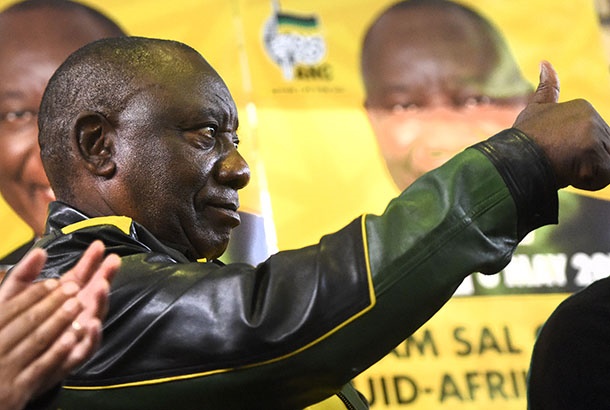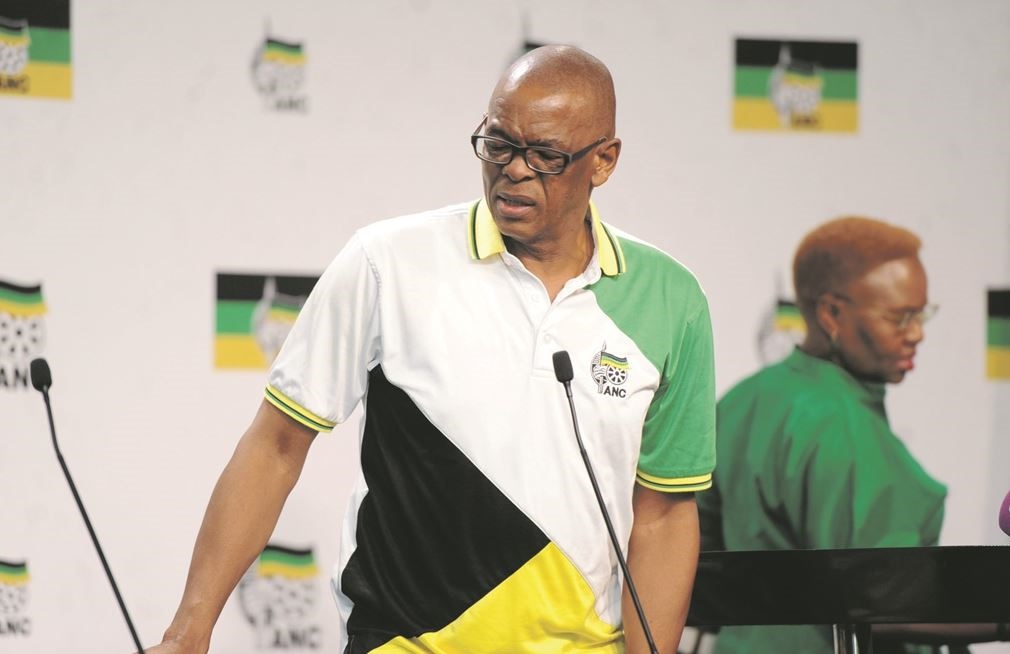
In February, weeks before the coronavirus pandemic upended life and its accepted norms, the ANC government was in deep trouble.
Finance Minister Tito Mboweni had just tabled one of the most depressing budget statements in years, telling South Africans that National Treasury was expecting weak GDP growth of less than 1%, flagging under-collection by the South African Revenue Service (SARS) of more than R60 billion and warning of the state's increased borrowing cost.
The weight of expectation had started weighing President Cyril Ramaphosa down. His reformist policies hadn't gained as much traction as he'd hoped, and even though reforms at vital institutions like SARS and the National Prosecuting Authority (NPA) had restored stability, the dead hand of state capture was still evident.
It would be an oversimplification to say that Ramaphosa's focus was twofold: restoring good governance and rescuing the economy, but in February this year that was where the emphasis was.
The NPA, headed Shamila Batohi, was seemingly gearing up for a big year, which was supposed to see some accountability for the years of grand looting under Jacob Zuma being exacted, while the judicial inquiry into state capture was starting to look at issuing interim reports.
Mboweni, who had been either out-of-step or way ahead of his party comrades (depending from which perspective you look) had grown increasingly frustrated with the slow pace of urgent and necessary reform. The former labour minister and governor of the South African Reserve Bank (SARB) had become a vocal advocate of radical economic transformation, but not the kind many in the ANC wanted.
He was adamant that the multi-year, multi-billion rand loss-making South African Airways (SAA) should be left to the judgement of the market – and should be allowed to fall over. He also started to put a brake on the public sector wage bill, reconfiguring the budget to ensure billions of rands of savings. And he was Pravin Gordhan's sidekick in effecting repairs to Eskom, the misfiring state electricity utility which continued to cast a pall on the country's economic prospects.
The status quo – then – was a government with very few options. It had little money, it was presiding over an anaemic economy, many institutions were still in the process of restoration and the realities of an ailing and failing state was forcing the ANC to stare economic and political realities in the face.
A governing party in trouble
In February this year, the governing party, unchallenged at a national level since 1994, was in trouble. Its government, with the party's leader deployed as head of state, was in the weakest position it had been in decades. Not only did state capture, conceptualised and executed by its own, cripple the state, but the party had started to suffer at the hands of the electorate.
And while Ramaphosa remained under significant threat from elements in his own party, who sought to consolidate their power, the ANC had become a shambles. Ace Magashule, its secretary-general implicated in a range of scandals, was starting to build his own power base at Luthuli House, while he took every opportunity to contradict the president (most notably on the future of the SARB) and to attack Mboweni. There remained significant opposition to Ramaphosa, with factions starting to consolidate ahead of the party's next big gathering, the national general council.
To Ramaphosa and his most trusted outriders, Mboweni and Gordhan, the realities of government's fiscal meltdown, the ruins of good governance, economic degeneration and the ANC's electoral slide presented the opportunity to drive reform. With the country very close to the lowest ebb it had been in decades, Ramaphosa could spend political capital, eschew deference to the party and drive fundamental and unavoidable reforms – much of which he would not be able to do during the normal course of events.
But the arrival of Covid-19 put paid to any plans for reformation Ramaphosa had – or which Mboweni was about to force through. The national state of disaster, the prolonged lockdown which has seen the economy ground to a halt, the promulgation of a range of regulations directing everyday lives and social tension have put everything on hold.
South Africans have yet to see any accountability for crimes related to state capture, the country's debt has been downgraded again (with South Africa losing its investment grade status), Eskom continues to issue warnings about electricity constraints, SAA is seemingly reconfigured under a different guise (but with the same people) and the economy is set to contract by as much as 7% this year.
The pandemic has seen the state reassert its role as the most important actor in South Africans' lives.
It has moved to the centre of everything the public does, from determining how you move around, to when you move around, who you can see and who you cannot see. It directs economic activity, decides who can earn an income and who cannot – and its edicts denote who qualifies for state assistance and who does not.
Thanks to emergency laws and a range of regulations, championed by Nkosazana Dlamini-Zuma, vanquished by Ramaphosa in the race for the ANC leadership and under whose ministerial authority the disaster is prosecuted, the state now has more power and more influence over almost every part of life than ever before.
It is in this highly regimented and centralised environment, with the state at the apex of society, which has now presented an ailing ANC with an opportunity.
The party, thanks to poor governance, eroding support and economic realities, had started to come unstuck. But Covid-19, emergency regulations and a nationwide deference to the state means the ANC can now use these adverse conditions to impose even greater centralisation and hegemony than ever before.
The state should give 'strong guidance'
That much is borne out by Enoch Godongwana's economic recovery proposals set out in a discussion document, which was presented to the party's economic transformation committee.
The whole premise of the party's mooted recovery strategy puts the state at the centre, with the establishment of a range of new state-owned companies part of its strategy. And although state-led development doesn't necessarily mean more state ownership, it does mean "high levels of guidance" by the state.
Covid-19, the presentation notes, "has shown the critical role of the state" and asks how it must leverage its "capacity, inherent authority and capabilities in leading society" to recovery.
The ANC wants to revert to key pillars of the reconstruction and development programme (RDP) from the 1990s, as well as pillars of the national development plan, which includes "structural transformation of the economy" via a "capable developmental state".
These are all catchphrases from an earlier era, where transformation and a capable state were still possible. But in a post-capture, post-coronavirus world, transformation is hamstrung by a severely weakened economy, and the last 12 years has all but killed the idea that this state is capable.
And while the document refers to the country's historical legacy of injustice and uneven development – Ramaphosa also mentioned it during his meeting on Sunday with editors – it is silent as the Sphinx on the devastation in our immediate past: state capture.
It was capture that led to the fiscus being looted, saw public companies turned into mafia states and good governance collapse. The proliferation of criminality, and the resultant impunity, has caused deep damage to the state's ability to function, to collect revenue and to its legitimacy as an effective leader of society.
Covid-19 has been a godsend to the ANC. A national emergency has placed the state, weakened as it is, back at the centre of society and armed it with wide-ranging powers to enforce change, all in the name of combating the virus. The party recognises this, and the different factions which make up the collective – whether it's the grouping who wants to nationalise the central bank, or those that want to access pension funds – are positioning themselves to ensure the state reasserts itself.
In February, events were starting to overtake ANC policy documents, central planning and sluggish and slow reforms. By May, thanks to a national disaster, it is the ANC who is looking to take control.

